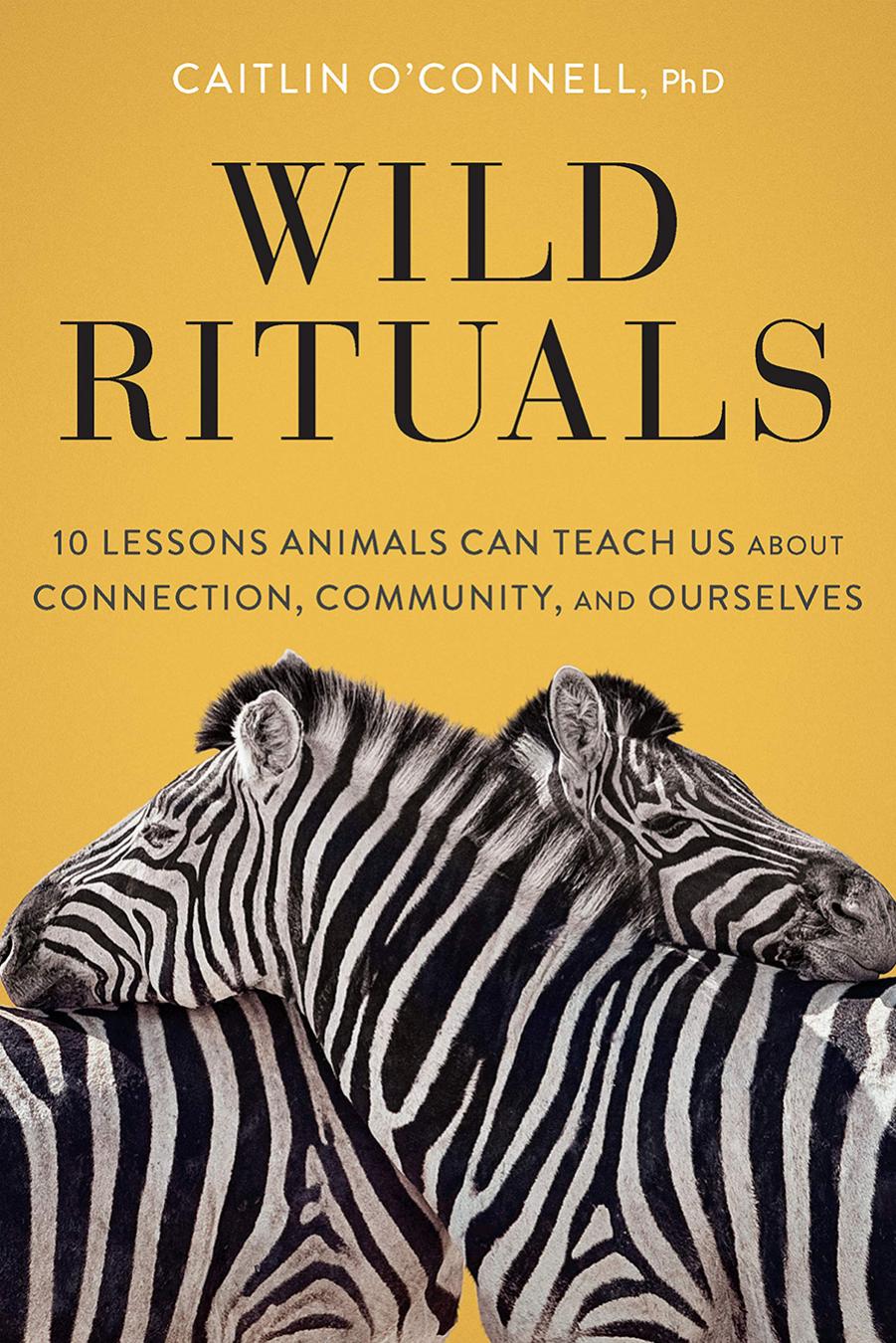Wild Rituals by Caitlin O'Connell

Author:Caitlin O'Connell [Caitlin O'Connell]
Language: eng
Format: epub, pdf
Publisher: Chronicle Prism
Published: 2020-11-20T05:34:52+00:00
In humans, psychologists have shown a direct relationship between playfulness and cognitive development, especially when we are youngâand particularly with playâs role in language development. When children play with peers, they create pretend scenarios. While playing âdoctorâ or âhouse,â children are required to name objects, articulate what they are imaging, and negotiate with their friends. All this promotes language. Interestingly, their language is more varied and complex when talking to kids their age than it is when interacting with adults. This shows that playing in an unconstrained environment welcomes kids to explore and experiment even more so with their language and thoughts.
Parental involvement in play can also help develop a deep bond between children and their parents and other adults. Children learn parental boundaries, explore morals, and develop a sense of imagination by watching adults play. Play is also critical therapy for both children of addicts as well as recovering addicts, providing them with a safe outlet to rebuild confidence and strength.
The importance of play cannot be understated. Studies have shown that severe play deprivation in childhood leads to abnormal neurological development, and that play reduces symptoms of ADHD. Play therapy is a dedicated field, for both children and adults, that uses play in a protected space to explore creativity and oneâs own sense of self to foster mental wellness.
In her article âIn Defense of Play,â Alison Gopnik says that we donât play because we think that it will improve cognitive functions. We play because itâs fun. Through play, we develop friendships and social connections, and strong social bonds lead to healthier, happier lives. However, Gopnik and others believe unstructured play is whatâs most beneficial. When children become overscheduled and lack âfree time,â this can undermine playâs benefits, such as stimulating creativity and bonding. So can video games (and social media). Some researchers say that, when kids play video games together, this can strengthen bonds and be a form of positive play, but others warn that video games can be highly addictive and lead to isolation and reduced socialization.
Thinking about how play is, in essence, about having fun always reminds me of a four-year-old gorilla named Henry I once met at Zoo Atlanta. Henryâs mother, Coochie, was considered a âhelicopter momâ by her keepers. Coochie was overprotective and overattached to Henry, and she was depriving her infant of the opportunity to build relationships with his peers through play and other bonding activities.
It quickly became apparent how Coochie got her nickname. I was in an area that is off-limits to the public, and I was surprised to see an adult female gorilla allowing a very large male to suckle as if he were an infant. Henry was not yet an adult, but he was certainly too large to be nursing, yet his momma, Coochie, just couldnât let go.
In fact, Coochie kept an iron fist on Henryâs leg and never let him go anywhere. This meant no play, no opportunity to explore, no interaction with others. This could spell disaster for Henryâs healthy development.
Download
This site does not store any files on its server. We only index and link to content provided by other sites. Please contact the content providers to delete copyright contents if any and email us, we'll remove relevant links or contents immediately.
The Lonely City by Olivia Laing(4799)
Animal Frequency by Melissa Alvarez(4465)
All Creatures Great and Small by James Herriot(4311)
Walking by Henry David Thoreau(3954)
Exit West by Mohsin Hamid(3824)
Origin Story: A Big History of Everything by David Christian(3689)
COSMOS by Carl Sagan(3618)
How to Read Water: Clues and Patterns from Puddles to the Sea (Natural Navigation) by Tristan Gooley(3466)
Hedgerow by John Wright(3355)
How to Read Nature by Tristan Gooley(3335)
The Inner Life of Animals by Peter Wohlleben(3313)
How to Do Nothing by Jenny Odell(3295)
Project Animal Farm: An Accidental Journey into the Secret World of Farming and the Truth About Our Food by Sonia Faruqi(3218)
Origin Story by David Christian(3195)
Water by Ian Miller(3179)
A Forest Journey by John Perlin(3069)
The Plant Messiah by Carlos Magdalena(2927)
A Wilder Time by William E. Glassley(2859)
Forests: A Very Short Introduction by Jaboury Ghazoul(2836)
